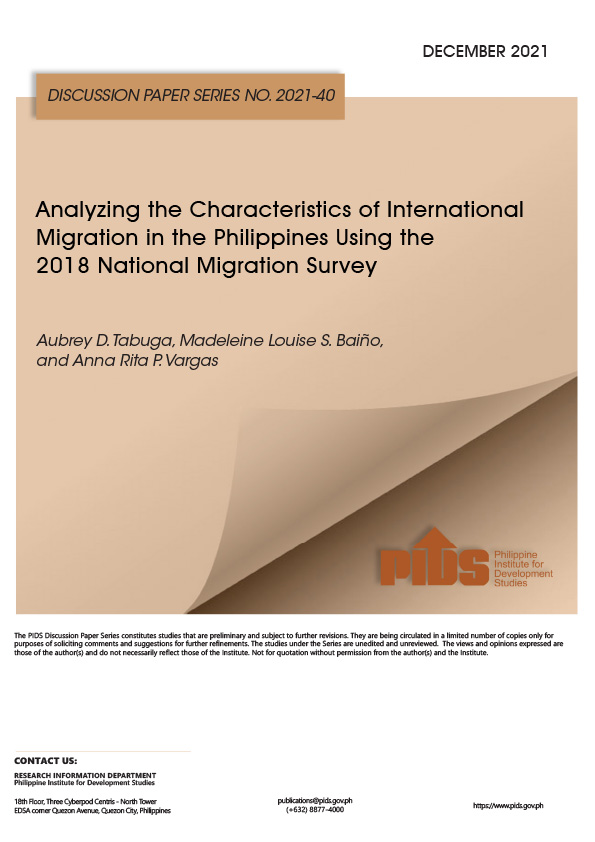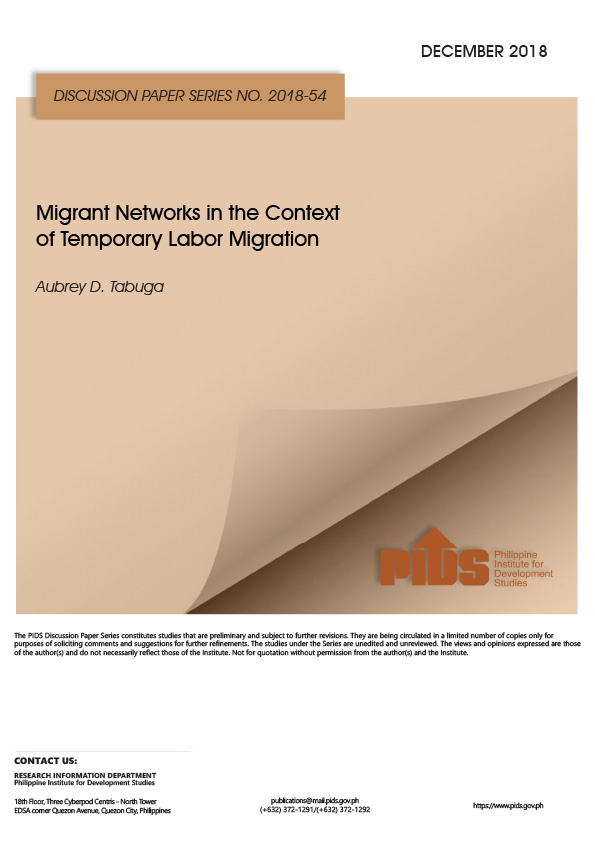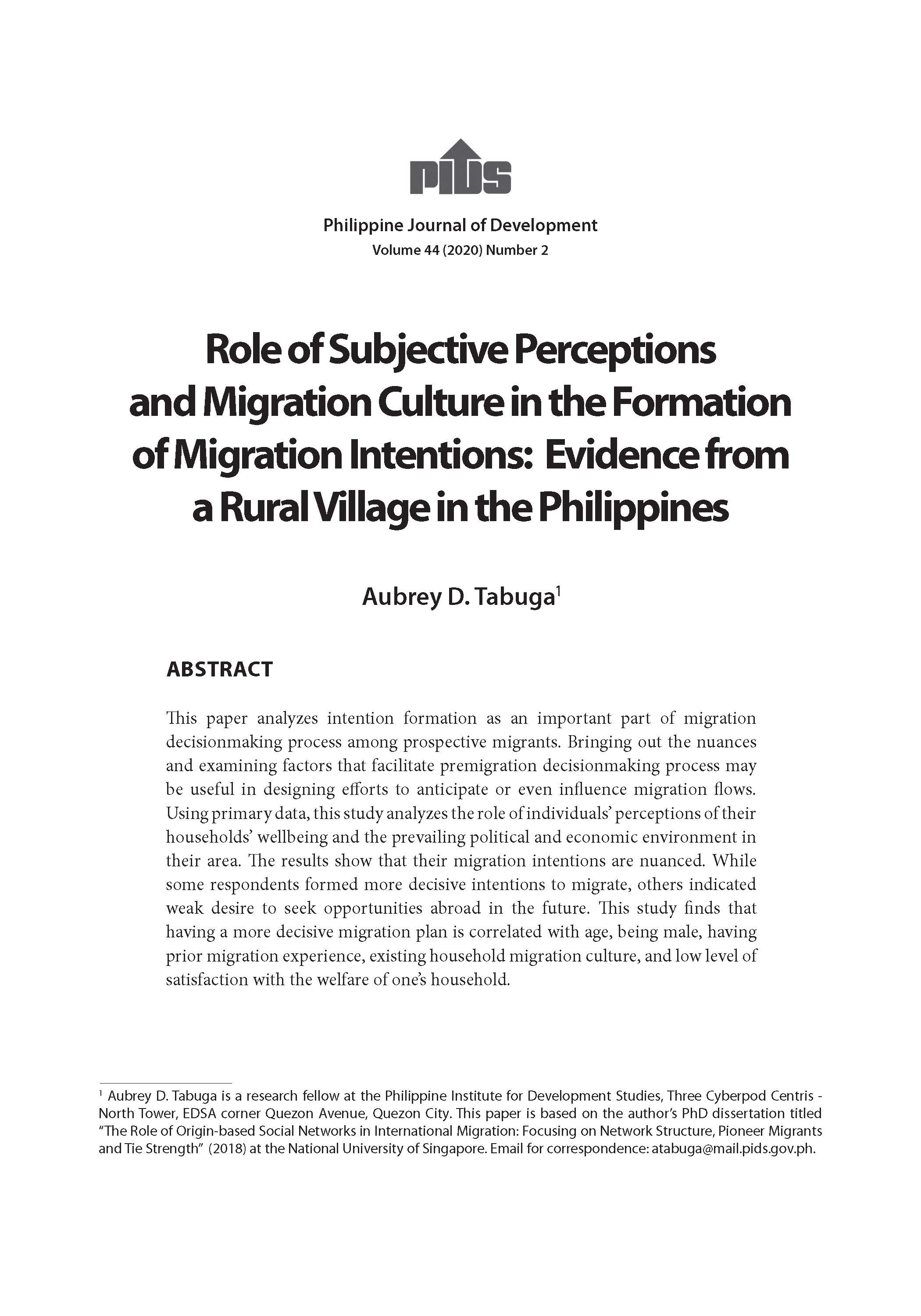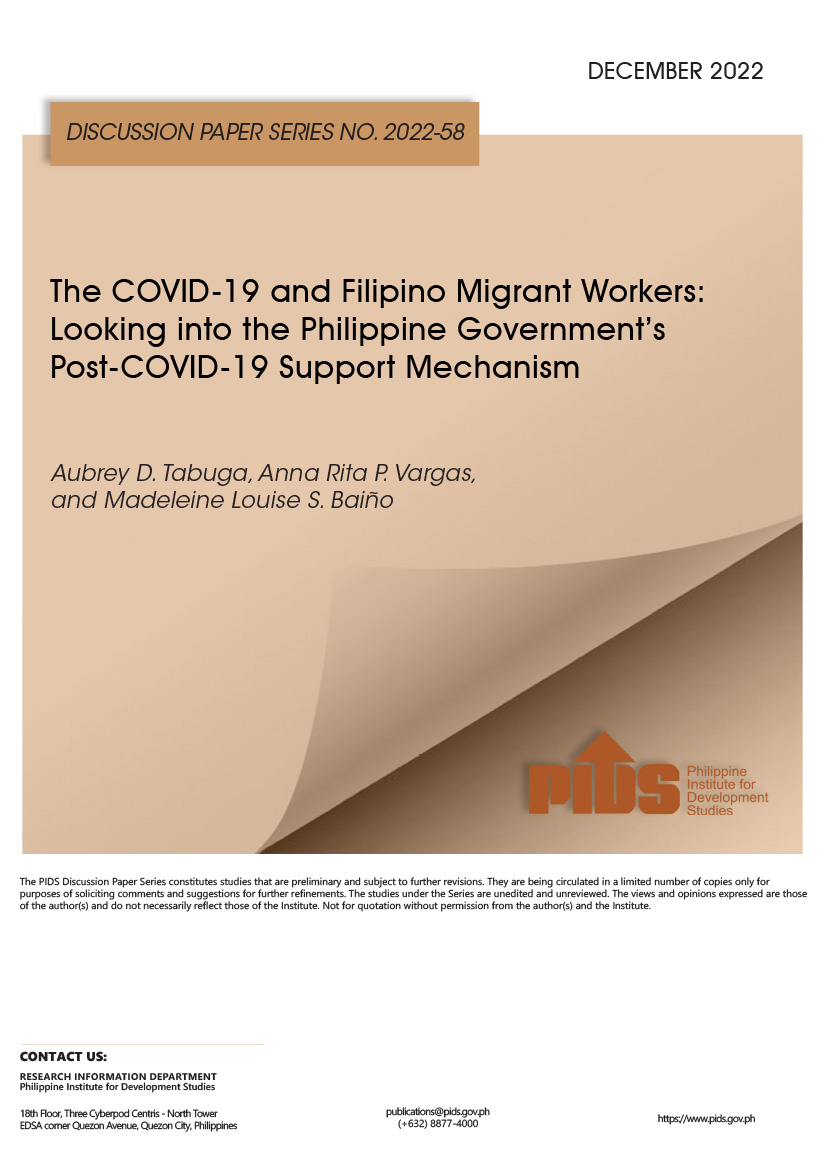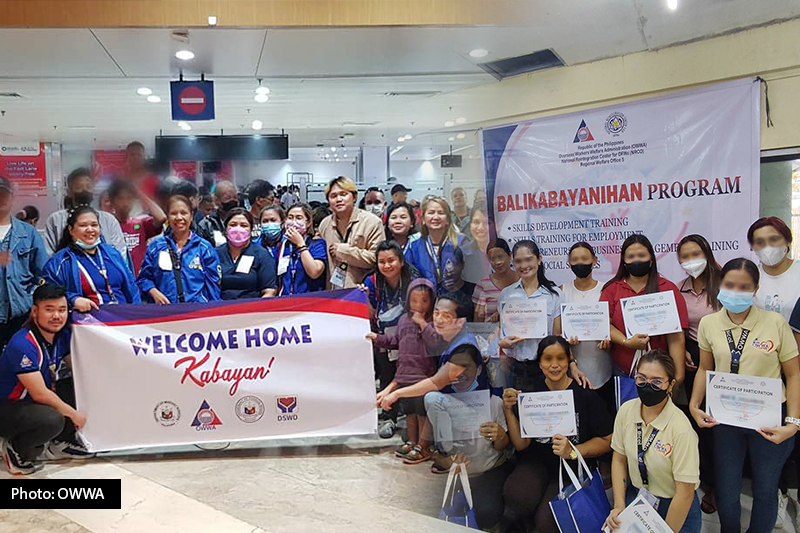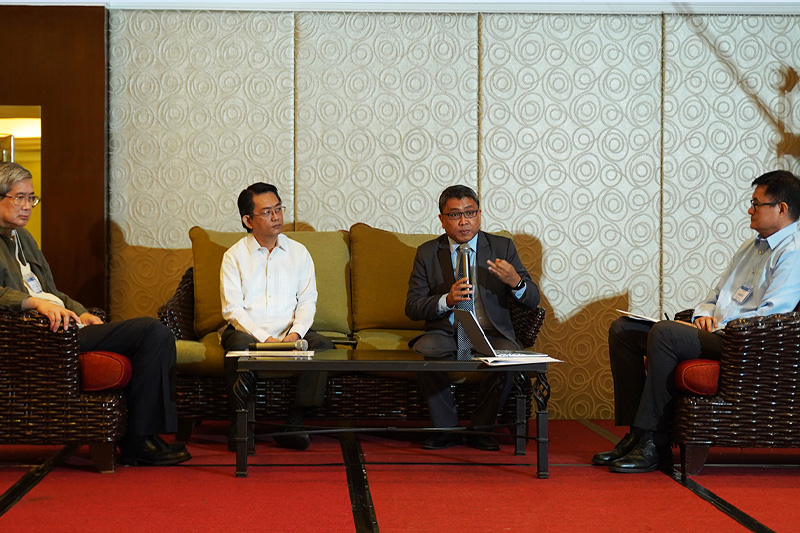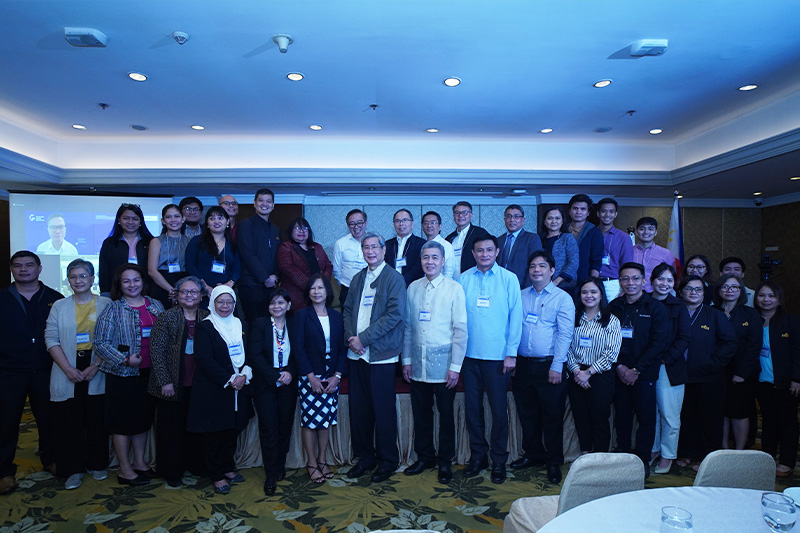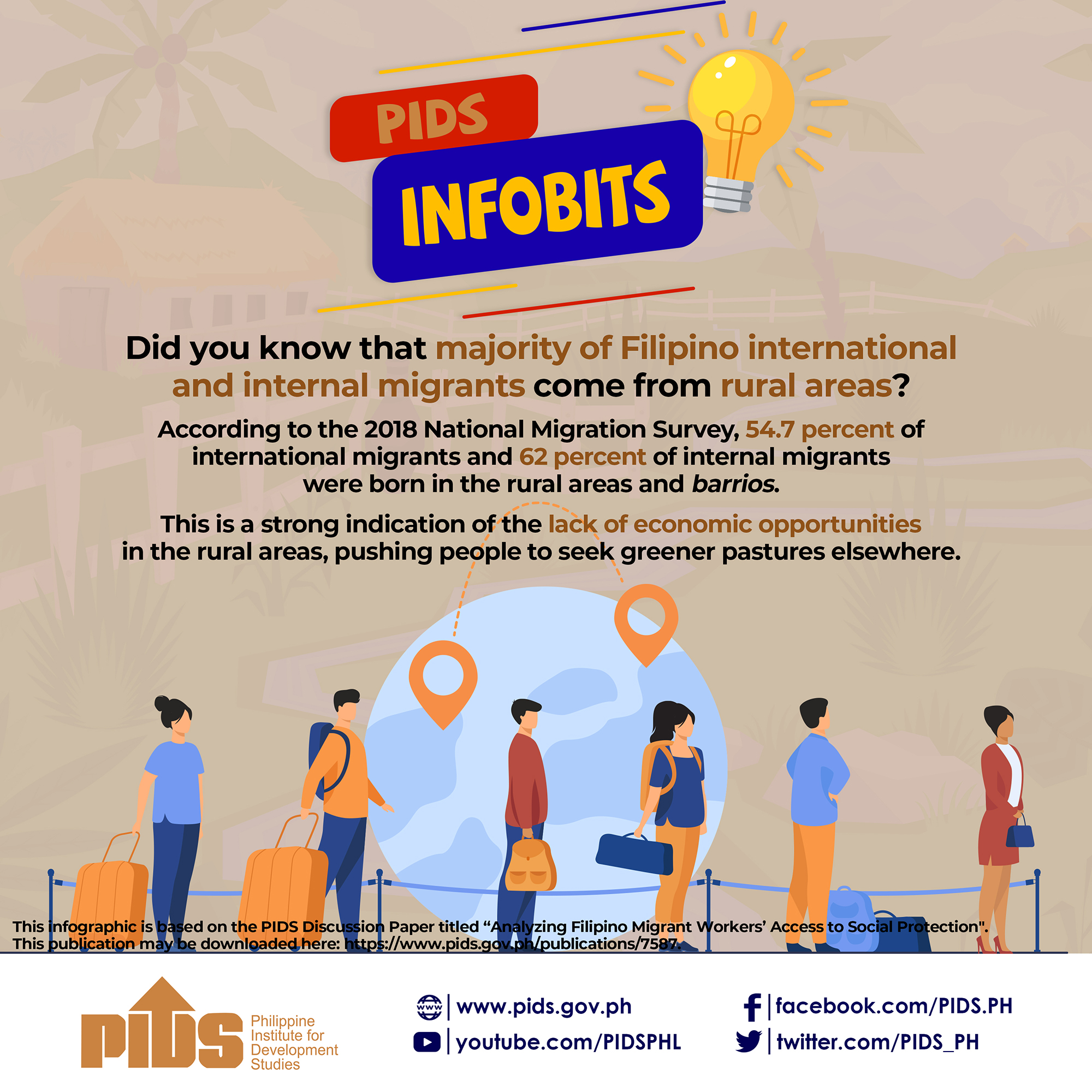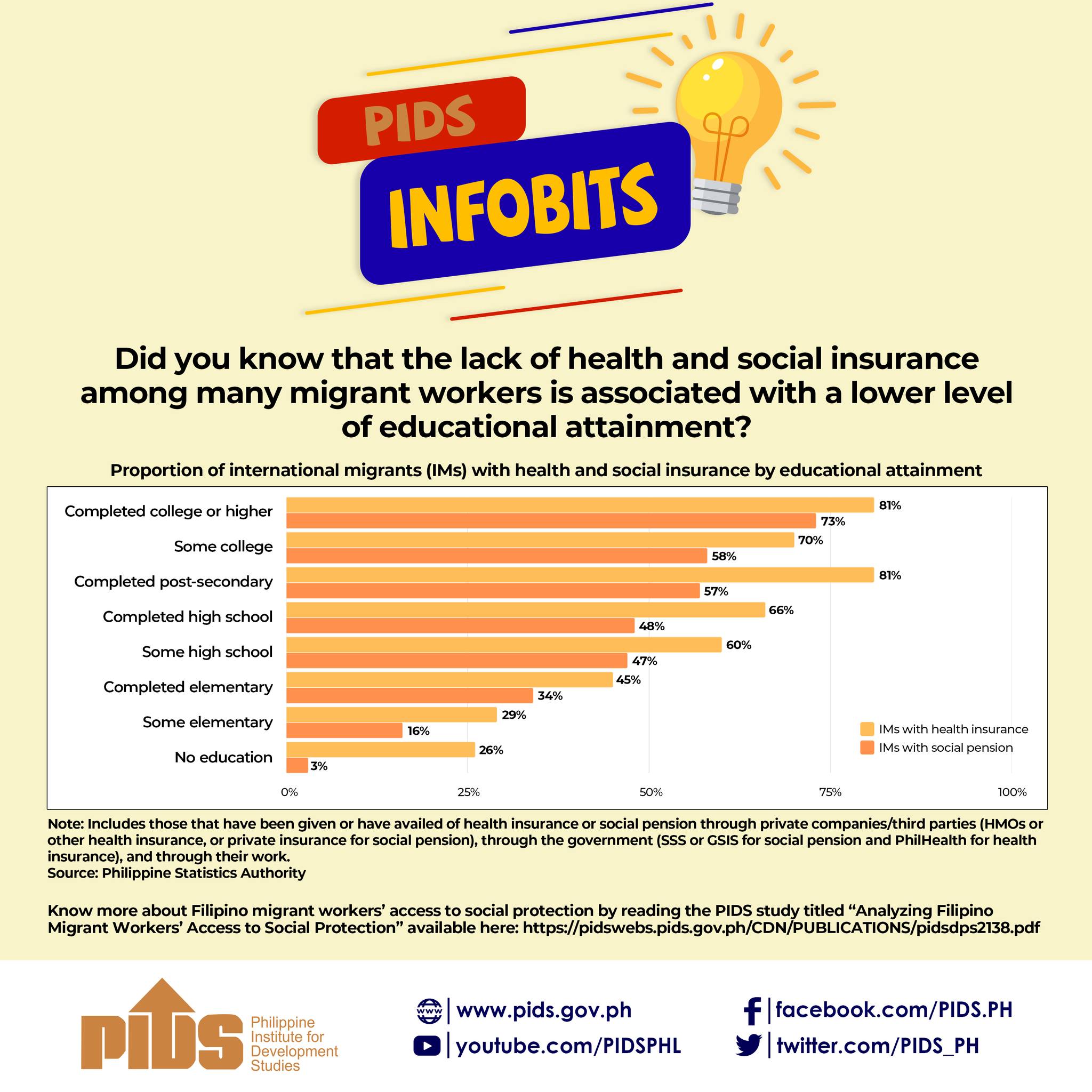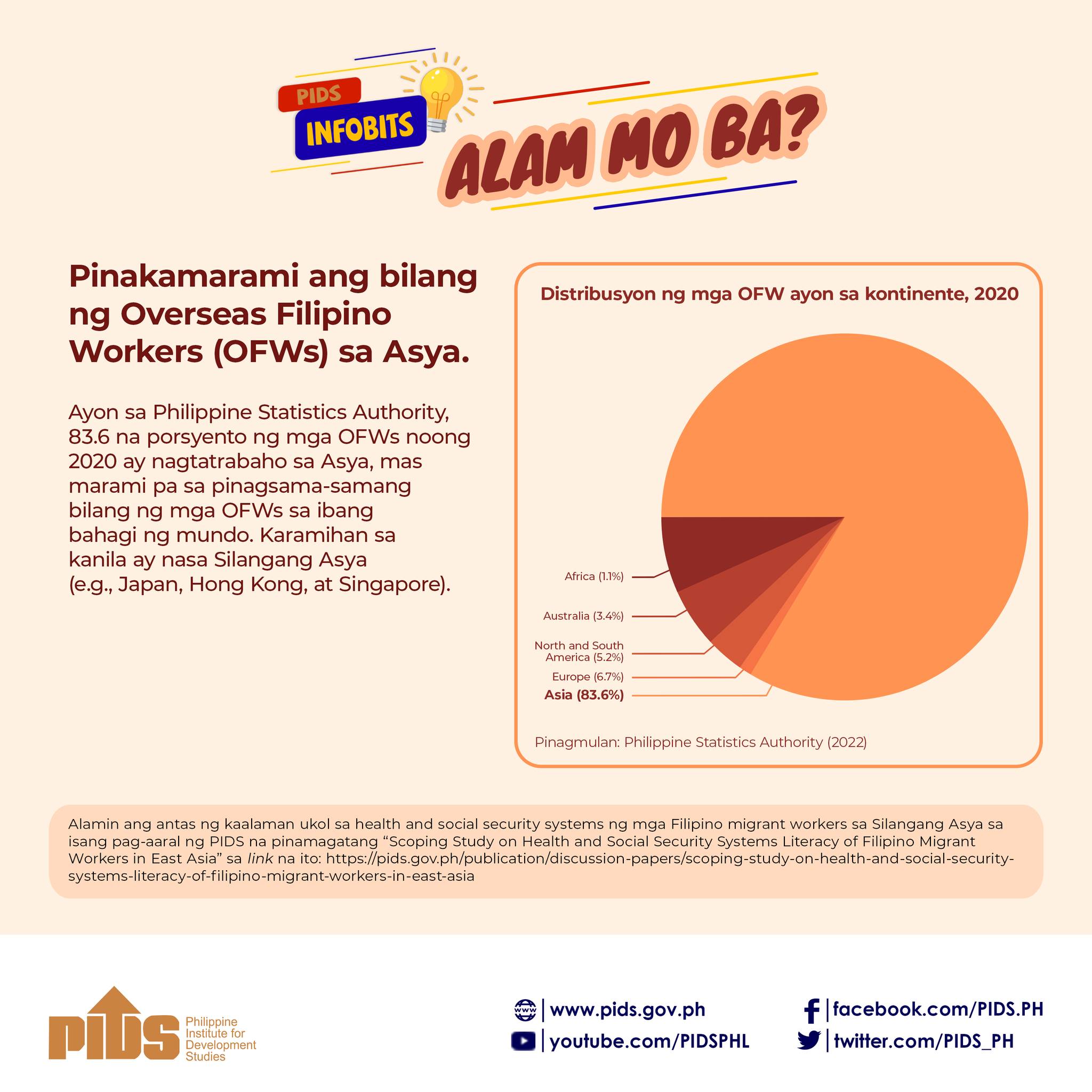In spite of the significant contribution of international migration to the Philippine economy, there has not been any government survey that can provide a nationally representative information on such phenomenon until 2018 with the conduct of the National Migration Survey (NMS) by the Philippine Statistics Authority. The 2018 NMS provides a reliable dataset that can be used to characterize migration phenomenon including international migration. This study took advantage of the presence of such data and examined the characteristics of international migration behavior of Filipinos for purposes of developing stylized facts and putting forward policy insights for improving migration-related and other development policies. The results show that Filipinos have a greater tendency for international migration when compared to the global average. Filipino international migrants move when at their prime ages. Some subnational regions like Ilocos Region, ARMM, Cagayan Valley, and NCR have a greater tendency or capacity for sending international migrants than others. Compared to the general population, international migrants are relatively more educated. International migration by Filipinos is mainly driven by economic reasons. Many Overseas Filipino Workers, particularly women, engaged in elementary occupations (61% of total). Majority of migrants leave children behind, many of whom are minors. Nearly half of first-time migrants did not have a job prior to movement. Not all of the migrants used work visas in entering their destination. Some used tourist visas while others did not need visas. An interesting finding is that majority of tourist visa holders who stayed at their destination for at least 3 months eventually changed their visas to work visas while at their destination. In terms of recruitment, although the most common way was through private recruitment agencies (59%), a non-negligible 34.2 percent were directly hired by their overseas employers. Surprisingly, despite the need for written contracts, some (12.6% of the total) still risk going abroad to work without a written contract. Having a written contract seems to be more prevalent among those who have achieved relatively higher educational attainment than those with lower attainment. There is also a greater tendency of not getting a written contract among those who were directly hired by the employer, those who did not need a visa to enter the destination, and those who went abroad using tourist visas. In terms of reintegration, a non-negligible proportion (35%) of all returning migrants find it difficult to find jobs in the country upon return. Given these findings, it is important to create relevant policies and interventions that can reduce potential negative impacts of migration and risks. It is important to effectively raise awareness and educate prospective migrants on the work conditions on-site (for the sizable portion of migrant workers who are young, less educated, and may not have adequate pre-migration experience and preparation) as well as the importance of having written, clear contracts prior to international migration.
Comments to this paper are welcome within 60 days from the date of posting. Email publications@pids.gov.ph.

